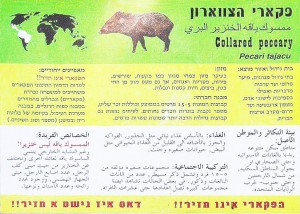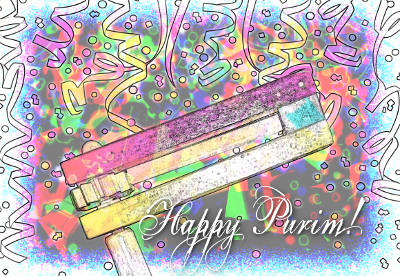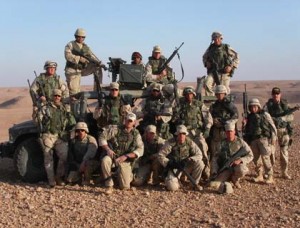
In the Haggadah, we recount the Ten Plagues that G-d inflicted upon the Egyptians. The Toldos Adam quotes the Medrash which says that these plagues, like all of G-d’s rewards and punishments, were done “measure for measure.”
- The Egyptians made the Israelites carry water, and did not give them time to bathe themselves, so the water turned to blood.
- The Egyptians shouted and yelled at them and did not give them rest, day or night, so they were afflicted with frogs that kept them up day and night.
- They made them clean the markets and streets, and animal excrement is a fertile breeding ground for lice, so they were struck with lice.
- They made them capture dangerous animals for them, risking their lives, so there was a plague of wild animals.
- They made them labor alongside their animals and shepherd their animals, so their animals died.
- They struck them until their bodies were covered by bruises, welts, and boils, so they were afflicted with boils.
- They hit them with stones, so they were struck with hail — stones of ice (he adds that they are called “stones” in the Book of Joshua).
- They made them farm the fields, growing their grain and planting trees, so their crops were afflicted
- They made the eyes of Israel dark with exhaustion and sadness, so they were afflicted with darkness.
- Finally, they struck Israel, who G-d calls “my child, my firstborn,” so their firstborn were killed.
We also read in the Haggadah that no matter how much we already know, it is a Mitzvah to tell the story of the Exodus from Egypt at the Pesach Seder, and the more one goes on and speaks about it, “behold, this is praiseworthy.” This translation, while accurate, is incomplete. Because the word we translate as “praiseworthy,” “meshubach,” comes from the word “shevach,” which refers to the increase and improvement in a field, vineyard or orchard, or even on top of a financial investment. The “shevach” is the profit.
Behold, this is “meshubach:” The Haggadah is telling us that if we spend extra time talking about the Exodus, describing it to our children, bringing to life for ourselves and others what it means to go from slavery to freedom, to become His Nation — this will pay dividends. There will be a profit. We and our families will be inspired not only during Passover, but throughout the year.
Our Sages also tell us that G-d’s rewards are greater than His punishments — everything is “measure for measure,” but there’s a stingy measure and a generous measure, and the latter is used for blessings. So if the plagues meted out on the Egyptians seem harsh, G-d’s blessings are much greater. When we talk “extra” about the Exodus at the Seder, says the Haggadah, we will be richly rewarded!





 Why does the Torah intertwine these laws? Last week we mentioned that the Torah speaks briefly of building the Mizbeyach, the Altar, immediately between the Ten Commandments and the Mishpatim, the judgments, to show us that the place of judgment, the location of the High Court, should be next to that Altar. The lesson we learned is they are intimately connected, that following judgments is as important to G-d as our prayers.
Why does the Torah intertwine these laws? Last week we mentioned that the Torah speaks briefly of building the Mizbeyach, the Altar, immediately between the Ten Commandments and the Mishpatim, the judgments, to show us that the place of judgment, the location of the High Court, should be next to that Altar. The lesson we learned is they are intimately connected, that following judgments is as important to G-d as our prayers. The word Mishpatim, judgements, represents a particular category of the Commandments. These are the ones governing the conduct of civil society, which, had they not been given in the Torah, would have to be enacted in order for civilization to function. Governments around the world prohibit murder, assault, and kidnapping — major crimes. But they also have rules about minor crimes, and even regulations about construction and obstacles, things which might harm another person. And in the situation that one party causes damages to another, whether physical or financial, whether deliberately or inadvertently, there are laws and court precedent explaining how the matter can be settled.
The word Mishpatim, judgements, represents a particular category of the Commandments. These are the ones governing the conduct of civil society, which, had they not been given in the Torah, would have to be enacted in order for civilization to function. Governments around the world prohibit murder, assault, and kidnapping — major crimes. But they also have rules about minor crimes, and even regulations about construction and obstacles, things which might harm another person. And in the situation that one party causes damages to another, whether physical or financial, whether deliberately or inadvertently, there are laws and court precedent explaining how the matter can be settled. The Medrash also records that when G-d spoke to the People directly, their souls left their bodies. They all died! The people couldn’t handle it. They had to have Moshe transmit the message. That is why the 10 Commandments begin with “I am HaShem your G-d,” but by third speaks of G-d in the third person: “you shall not take the Name of HaShem your G-d in vain” [Ex. 20:2, 7].
The Medrash also records that when G-d spoke to the People directly, their souls left their bodies. They all died! The people couldn’t handle it. They had to have Moshe transmit the message. That is why the 10 Commandments begin with “I am HaShem your G-d,” but by third speaks of G-d in the third person: “you shall not take the Name of HaShem your G-d in vain” [Ex. 20:2, 7].